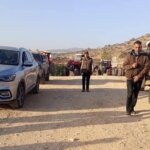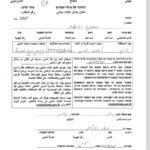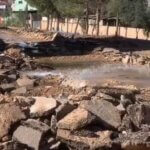The people of the Jordan valley are deprived of water
The Jordan Valley is under fierce attack from the occupation. The so-called Israeli Civil Administration decided today, Monday 12 July, to turn hundreds of acres of agricultural land into nature reserves in the northern Jordan Valley, east of the city of Tubas. This decision was officially issued by the so-called Israeli Civil Administration, which is lands located within the borders of the Al-Farsieh and Ain Al-Hilweh area in the Jordan Valley.
Rashid Khdeirat confirmed that preliminary information indicates that more than 1,500 dunums of these lands have been converted into nature reserves, bringing the number of lands that have been converted by the occupation government in the Jordan Valley into nature reserves so far, 76,000 dunums of land.
Khdeirat emphasized that these lands are located between Rotem settlement and Maskiot settlement, and the owners of these lands are Palestinian citizens who have all the necessary identification papers to prove the ownership of these lands,
The conversion of the lands into nature reserves means that land owners will be prohibited from building or cultivating the land or even changing the reality of the land and controlling the water spring called Ain al-Hilweh spring, which is one of the the most important sources of drinking water for the Palestinian population in the Jordan Valley, and also considered a fertile place for pastures for sheep and cows.
The occupation also adopts a policy of controlling land and water to displace the owners of the land. On Monday 7/12/2021, the occupation forces demolished an agricultural water pool in the village of Bardala, this is the third pool during a month to be demolished in the village of Bardala. A year ago Israeli forces isolated the Ain al-Sakut spring by placing gates and fences around it, and to this day hundreds of children and families are deprived of drinking water, and this is the biggest racial discrimination that is applied in the Jordan Valley by the Israeli occupation state and its institutions.






